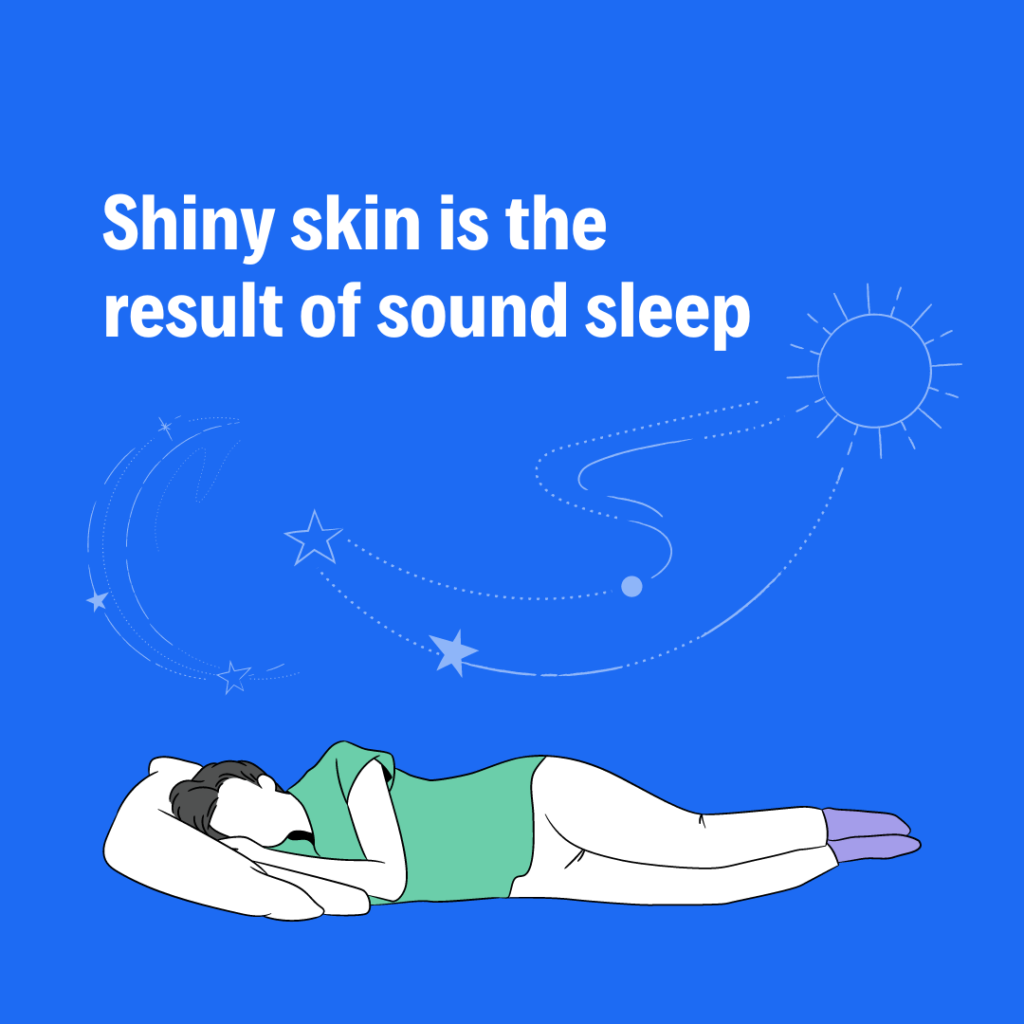Getting a good night’s sleep is essential for overall health and well-being, and it can also benefit the health and appearance of your skin. While you sleep, your body repairs and regenerates skin cells, which can help to reduce the signs of aging and improve the overall texture and appearance of your skin.

Here are some ways in which getting enough sleep can benefit your skin:
- Reduces Inflammation:
Sleep plays a vital role in reducing inflammation in the body, including the skin. Inflammation can cause a range of skin problems, such as acne, psoriasis, and eczema. When you get enough sleep, your body is better able to manage inflammation, which can lead to clearer, healthier skin.
During sleep, your body produces collagen, a protein that helps to keep your skin elastic and supple. Collagen production decreases as we age, which can lead to sagging and wrinkling skin. By getting enough sleep, you can help to boost collagen production, leading to firmer, more youthful-looking skin.
During sleep, your body goes into a state of repair and regeneration. This process helps to repair any damage that has been done to your skin during the day, such as exposure to pollution, UV rays, and other environmental stressors. By giving your body enough time to regenerate, you can help to keep your skin healthy and radiant.
Lack of sleep can lead to dark circles and puffiness around the eyes, which can make you look tired and older. Getting enough sleep can help to reduce these symptoms, as it allows your body to drain excess fluids and reduce inflammation.
- Boosts Immune System:
Sleep is essential for the proper functioning of your immune system, which plays a critical role in protecting your skin from infection and disease. A strong immune system can help to prevent skin infections and other conditions that can damage your skin.
- Stick to a consistent sleep schedule: Try to go to bed and wake up at the same time each day, even on weekends.
- Create a relaxing bedtime routine: Take a warm bath, read a book, or practice relaxation techniques, such as deep breathing or meditation, before bed.
- Create a sleep-friendly environment: Make sure your bedroom is dark, quiet, and cool, and invest in a comfortable mattress and pillows.
- Avoid caffeine and alcohol: These substances can disrupt your sleep and cause dehydration, which can lead to dry, dull skin.
- Limit screen time: Blue light from electronic devices can interfere with your body’s natural sleep-wake cycle, so try to avoid using them for at least an hour before bed.
In conclusion, getting a good night’s sleep is essential for the health and appearance of your skin. By following these tips and making sleep a priority, you can help to keep your skin looking youthful, radiant, and healthy.
